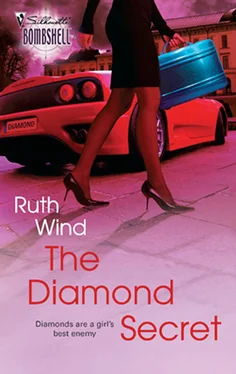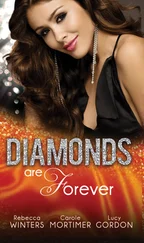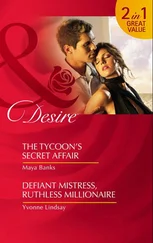The blue Fiat zoomed by me, and I glanced over curiously. The man driving was not thrilled to have been passed up by a girl. I saw it the minute he glanced over at me, a little rumbling of competition. A growl of his engine.
I smiled. The Spider was a dream car, more than enough for an itty-bitty challenge like this. The traffic was heavy and I wouldn’t be an idiot and risk other people’s lives, but I’d play for a minute with Tom Fiat.
Pressing down with my foot on the accelerator, I coaxed the Spider next to the Fiat, and edged ahead, just enough to let him know I was doing it on purpose. He gunned it, and tugged ahead, but the Spider wasn’t even panting yet, and I caught him easily, rumbling along beside him.
We sailed around a tight curve, bound on either side by rolling fields, coming up behind a semi that was lumbering along on the right.
Signs warned that the road would narrow to two lanes in 1000 meters, 500.
I knew I could take him. Through my body, I could feel the smooth connection between the machine and myself, as if the engine were part of my fingers, my arms. I rode the curve, hugging the road, and passed the truck. Wind whipped my hair around my neck. I downshifted, whirled around the turn. On the right, cars going the opposite direction roared by, mere inches away across the dividing line.
I grinned to myself. Exhilarating!
Tom Fiat had steam coming out of his ears as he whizzed around the lorry to catch up with me. Everyone in Scotland drives as if they’re muttering “bastard” under their breath, anyway, and there’s a reckless fatalism that can give even me a few moments of pause.
Still. It was a point of pride just now. I held to the lead.
Ahead loomed the narrowing lanes. Tom was about to kill someone. I let up on the gas, hugged the road to the left to let him pass and waved as he went by. His face was a dull red of fury, and I laughed to myself. No one ever expects a woman to drive the way I do.
But most women don’t learn to drive from a world-class Formula One driver. My father, the legendary American Gordon Montague, is one of the most revered drivers on the planet at the moment, and I’ve no doubt the legend will live long after he kills himself in some spectacular wreck at Monaco or Barcelona. He’d like that, dying dramatically in some glamorous spot, mourned publicly by whatever young wife he happened to have picked up at the moment.
Dear old dad.
I was glad of the car, and wished, briefly, that he was with me. It’s been a while since we’d had any time together. I was tempted to ask him to meet me in Glasgow after the Malaysian Grand Prix in Kuala Lampur, but I had a feeling he’d say no. Scotland makes him feel guilty.
As well it should.
Scotland is my mother’s place, and I admired it now through her eyes—a countryside as calming as the wind blowing in my window. It was lambing season, and little balls frolicked in the fields among the more sedate sheep and the odd shaggy red cow. Trees bent halfway sideways belied the bucolic scene, showing what the winds are like around here, but on this bright day, I could even see the island of Arran in the distance, an uneven line of pale blue mountains on the horizon.
I’d opted to stay in a hotel rather than with a relative, even though there are several I could choose from in my mother’s hometown. Which is actually the trouble. If I picked one, I’d hurt someone else’s feelings. A hotel room is easier.
The job in Glasgow would start in a couple of days. My plan was to knock around Ayr and the seaside of my childhood, visit my aunts and cousins, make a stop to put flowers on my mother’s grave, then head back to Glasgow for the assessment, maybe catch some shows or something.
Since I didn’t know that giant diamond was stashed away in my bag, I stopped first at my grandmother’s house. She lived on a well-kept street of what we’d call fourplexes. Row houses, they call them, and there are thousands and thousands of them all throughout the U.K., built right after the war.
That would be the war, World War II.
My grandmother lived on the end of her building. Her windows were polished, as were all the windows on the street, and red tulips had pushed their way up into the spring air. She’d no doubt been waiting for me—sitting with her next-door neighbor, Anna, and a blue budgie who sang to her from his perch—because she flung open the door. “Ma cher!” the elder Sylvie cried. “I am so happy to see you!”
I dashed up the narrow sidewalk to hug her. Tiny as a sparrow, her white hair now cut neatly around her sharply angled face, she was still a beauty at seventy-eight. She had nary a wrinkle. “Come in, ma poulette!” she cried. “Have you had your tea?”
“No, of course not! Not if I had a chance to have your coffee and some cake.”
Over my shoulder, my grandmother glared. I turned to see a battered Mini crawling down the street. “Go on with you!” she cried, sounding more Scottish than French. “Nosy rats. They’ve been nosing around all day.”
Paparazzi again. I was tempted to flip them off, but it would only give them what they were after—something to print in their trashy little journals. My hugging an old woman wouldn’t do much for their circulation.
In the vestibule, she took my coat and led me into the tiny sitting room, where her best friend Anna waited. Slim and thoughtful, Anna had always been one of my favorites. She told wonderful stories of her girlhood and the Scotland that existed before the war, and she did not suffer fools lightly.
“Hello, Sylvie,” she said. “We’ve just seen your father on television.”
“Really.” I settled in the place they made for me before the fire, feeling as pampered as a beloved princess. “Tell me all about it.”
In the street outside the window, the beat-up Mini rolled by again. Something about the man behind the wheel was seedier or grimmer or something than the average—even average tabloid—photographer. I narrowed my eyes and stood up to watch him go by. He was very interested in my car.
“What is it, dear?” Grandmother asked.
I shook my head, unwilling to worry them. “Just that photographer again.”
But I wondered.
KATERINA’S BLOOD, diamond with ruby inclusion; 83 karats; first recorded ownership: 1253, Romania. Supposedly cursed by a priest, to bring death to anyone who wishes to use it for greed.
—Legends and Lore of Famous Stones
I spent a solid 90 minutes with the two older women, feeling the tensions of work, life, everything just drain away. The coffee was bland, the cakes a little dry, but it was the company I wanted. After a while, however, the warmth and comfort of the sitting room made me feel sleepier and sleepier. I kissed them both and headed off.
I’d reserved a room in a hotel close to the top of the town. It turned out to be an agreeable old house, with heavy paneling on the walls and pressed curtains at the windows of the foyer. The smell of meat and onions hung in the air from the restaurant/pub on the ground floor as I checked in. I’d have a nice shower then find something sustaining, which is never hard to find in Scotland. Honestly, with all the bakeries with their fluffy white breads and delicate cakes, with the brideys and bacon rolls, you’d think the whole country would be rolling around like little butterballs, but they’re not. It’s a sturdy population, plain-faced and direct, with dogs and people taking their exercise outside all the time.
In my plain, pleasing room, I tipped the busboy, a youth of maybe seventeen with a shaved head and a thick earring in his left lobe, and threw my suitcase on the bed. I kicked off my shoes, and started unbuttoning my blouse as I headed for the bathroom to start the shower. Another reason to have a room in a hotel. Showers have never particularly caught on in homes in Britain. It’s better than it was when I was a child, but still a long way from the copious amounts of high pressure water you get in America.
Читать дальше












